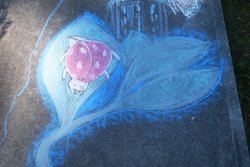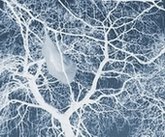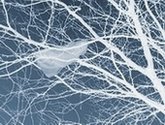Blogroll
- Meals I Have Eaten
- Jess's New Blog
- One of Jess's Old Blogs
- The Stop Button
- Jenerator's Rant
- The Rejection Collection
- Pockets Stuffed With Notes
- The Silkie Road
- PostSecret
- Informed Comment
- Talking Points Memo
- Spoken & Heard
- Ever So Strange
- that-unsound
- Marvelous Prompts (& Responses)
- Only Words To Play
- So Misunderstood
- Acknowledge & Proceed
Profile & Email
Previous Posts
- If I Were to Take 4 Photobooth Moments With You Th...
- upon examining a picture of Trotsky
- spring break 2013
- Um, howdy there. I think it's going to take a bi...
- Uber MIA
- Thankie Thankerson
- encrazed (with three exclamation points)!!!
- My Adorable Chickens
- Some days, some days most recently, I just don't ...
- re: teaching / learning
Archives
- April 2005
- May 2005
- June 2005
- July 2005
- August 2005
- September 2005
- October 2005
- November 2005
- December 2005
- January 2006
- February 2006
- March 2006
- April 2006
- May 2006
- June 2006
- July 2006
- August 2006
- September 2006
- October 2006
- November 2006
- December 2006
- January 2007
- February 2007
- March 2007
- April 2007
- May 2007
- June 2007
- July 2007
- August 2007
- September 2007
- October 2007
- November 2007
- December 2007
- January 2008
- February 2008
- March 2008
- April 2008
- May 2008
- June 2008
- July 2008
- August 2008
- September 2008
- October 2008
- November 2008
- December 2008
- January 2009
- February 2009
- March 2009
- April 2009
- May 2009
- June 2009
- July 2009
- August 2009
- September 2009
- October 2009
- November 2009
- December 2009
- January 2010
- February 2010
- March 2010
- April 2010
- May 2010
- June 2010
- July 2010
- August 2010
- September 2010
- October 2010
- November 2010
- December 2010
- January 2011
- February 2011
- March 2011
- April 2011
- May 2011
- June 2011
- July 2011
- August 2011
- September 2011
- October 2011
- November 2011
- December 2011
- January 2012
- February 2012
- March 2012
- April 2012
- May 2012
- June 2012
- July 2012
- August 2012
- September 2012
- October 2012
- November 2012
- January 2013
- March 2013
- May 2014
n. infantile pattern of suckle-swallow movement in which the tongue is placed between incisor teeth or between alveolar ridges during initial stage of swallowing (if persistent can lead to various dental abnormalities) v. [content removed due to Bush campaign to clean up the internet] n. act of nyah-nyah v. pursuing with relentless abandon the need to masticate and thrust the world into every bodily incarnation in order to transform it, via the act of salivation, into nutritive agency
Saturday, March 25, 2006
diggin' my dreams
Aside from teeth-falling-out dreams, I've been enjoying the bizarreness that my brain has been projecting lately. I decided that the teeth dreams were health-concerned, however, and am soon to make a doctor's appointment to get everything checked up so I can stop worrying. But here are two of my recent favorites, at the risk of annoying with dreams, which people rarely want to hear:
-I turn a teacup over on a saucer, put a single cornflake on its base, and then push the cornflake around for awhile. Finally, I turn to a friend and say, "Do you think this will be sufficient for my MFA show?"
-A narrator voice says: "You will henceforth not be able to see any part of anybody's body that is currently experiencing a Cartesian mind-body split." I then walk around and people are only their noses, or an arm, or a leg. Limbs seem to levitate in space, but I have regular interactions and conversations with them. All the while, I am thinking, who'd have thought that so many people are divided from their bodies. What amuses me in hindsight is that people would be "whole" and unseperated in such body parts as their noses. I sniff, therefore I am.
-I turn a teacup over on a saucer, put a single cornflake on its base, and then push the cornflake around for awhile. Finally, I turn to a friend and say, "Do you think this will be sufficient for my MFA show?"
-A narrator voice says: "You will henceforth not be able to see any part of anybody's body that is currently experiencing a Cartesian mind-body split." I then walk around and people are only their noses, or an arm, or a leg. Limbs seem to levitate in space, but I have regular interactions and conversations with them. All the while, I am thinking, who'd have thought that so many people are divided from their bodies. What amuses me in hindsight is that people would be "whole" and unseperated in such body parts as their noses. I sniff, therefore I am.
Sunday, March 19, 2006
symmetry // asymmetry
Here's the final product for my symmetry letterpress project.











Overall, I'm simply relieved that it's done. Satisfaction level is negligible, although I'm content that I learned something about setting and resetting and printing and printing. My next assignment is to create an instruction manual, the parameters: *no images, *few words as possible, *only two weeks to finish it, *think about the details.
Here is a random list of ideas that I tossed around before discarding for the instructions that I'm going to diddle with for awhile, which I will only disclose when the ink is dry (haha).
How to: be a redneck, fish, get lost, remain humble, garden organically, teach, stay young, avoid settling, get back, find home, fight boldly, make a poem, ride the subway, own a pet, avoid Republicans, get interested, not bore me, spin straw into gold, be a Surrealist, say "fuck off" with as little grace as possible.
Alas, only one can be done...
no protest
 So, there was an anti-war protest in Chicago on Saturday, and I thought about going. But in the end, I didn’t exactly. Juan Cole reports on his blog, Informed Comment, that about 7,000 people went, which is more Americans than have died in Iraq, but less than the overall casualties. I had my reasons for not going, and yes, I’m against war in general, and the war in Iraq in specific…
So, there was an anti-war protest in Chicago on Saturday, and I thought about going. But in the end, I didn’t exactly. Juan Cole reports on his blog, Informed Comment, that about 7,000 people went, which is more Americans than have died in Iraq, but less than the overall casualties. I had my reasons for not going, and yes, I’m against war in general, and the war in Iraq in specific…Saturday morning was beautiful here in Chicago – sunny and a little cold, and I was feeling very antsy for motion. So, I went on a long walk and towards the beginning ran into this group of day-protesters in the island between Kedzie, Logan Square, and Milwaukee. I noted how few of them there were, and how they moved around the little concrete island like bags floating in the air. I stopped and sat on a bench and watched them in action. Nearby, a boy played on a skateboard.
Occasionally, a car would blare its horn as it passed--often SUVs with as few as one occupant speckling the interior.
I thought about how protest sort of feels like landscape: you drive by it and say to the kids in the back: “look, honey, did you see the protesters?” much in the same fashion as one might note a pony frolicking in the field, but with less enthusiasm than one would greet a deer dashing across the road. It’s all part of the backdrop, and a family in an SUV can afford to honk their horn in agreement, and I can afford to give the thumbs-up because we’re “safe” from thinking about what all of our daily actions create, and part of what makes us “safe” are the protesters who make us feel a little more comfortable for either having 1) honked our horn, or 2) participated.
I’ve been to protests and sometimes they feel like a coming together of energies, and sometimes they feel like aggregates of little atoms spinning round and round.
Instead of going to the protest on Saturday evening, I went to a screening of two political films, one of which is in progress, and the other of which is pretty much finished. The Busker Gallery is supporting these screenings for the next few months in a series called “spec.”
The first was a series of newfound film archives from a missionary who worked in Vietnam (during the Vietnam war), Korea, and Cuba among other places. The films were incredible… one still of a dead GI’s foot as it was helicoptered away from the fields… spoke legions. Sometimes the missionary films were propagandistic against the commies, and sometimes they were eerily silent collections of faces and motions: objects all, but somehow more tangible for the editorial work that placed a pilot’s blank expression next to a soldier’s pinched squeeze as he lifted his buddy into the helicopter.
By the way, this film is the one that is in progress, and I was totally amazed at what this 22-year-old video artist had found in his family’s personal archive. rc is b’s roommate, and if you’re interested in such, his project still needs funding… most of the film stock is damaged and needs to be cleaned before he can start making some kind of narrative sense out of it.
The other film was called Get Rid of Yourself, and was a film that looked at protest, namely the protest surrounding 9-11 and a French anarchist protest that involved violence such as police tear-gassing and bystander retaliations. This film was not condoning protest, but rather looking at the cult of rebellion, intellectualization, false intellectualization, and co-option that is involved with protest. I wouldn’t say that it makes a definitive stance against protest, but it certainly wasn’t in favor. I believe that the overall message was: it's your march that allows millions to sit at home and pat themselves on their backs for a variety of reasons.
Most interesting was the inclusion of Chloe Sevigny as she read a series of translations from the French in what was obviously a metadrama query into how Hollywood, or film, or acting in general, can take an original and spin it in a thousand different directions. Sometimes reading in a baby voice, sometimes a low one, laughing over her misreadings, and repeating lines in order to memorize and characterize, these blips make obvious the ways in which ideas get appropriated—whether helpfully or not.
The film ended, after random screenings of the French protest, 9-11 protests, Sevigny, shots at the beach of people sitting under sun umbrellas, and a farcical spoof on older intellectuals pooh-poohing the energy/cult of youth (this character at one point rolls up his pants, wades in a pool, and pulls out a dead carp, suddenly announcing: “this is capitalism.”). The last images were of a forest with chimes and a bunch of livestock walking down a road… it made me uncomfortable; the lulling tranquility of it, the way everyone in the dimly lit room was watching the light shift through the tree branches… and seemed like a message about what we would rather see, what conclusions we would like to draw about our actions. And then, just as I was thinking this and looking down at b, who went with me, in order to not be looking at the screen, the film shifted back to Sevigny reading the French anarchists' lines while resting her head on a pillow.
Definitely made me think.
But if marching is not adequate, what then? Did the violence of the French protesters add something to the moment that walking peacefully down a street does not? Or what are the other options to simply sitting on my arse and letting Rumsfield make a goddam mess out of a situation that we cannot now withdraw from because we already went in and fucked everything up? Certainly watching a political film is not adequate response in itself, but I'm not sure marching is either. Creative options anyone?
Anyhow, both b and I were a little out of sorts after the film, and decided to go downtown to the place where the protest was and see if anything was left over. So we bundled up, hopped on the bus, and rode down to the Magnificent Mile—the capitalist street ad infinitum, where the protest was held a few hours earlier. Once there, we walked down the street and looked around us for any sign whatsoever that a protest had taken place there on that day.
Nothing, not even a leaflet floating around. No signs. No people still gathered around a burnbarrel talking about what could be, what is, what was. Just a few homeless folks shivering under their blankets.
our barrios, mis amigos
My brilliant friends: engage Natalia Sophia Paz in dialogue on her new project. Here are her words:
"Who am I? A wet-back spic or suburbian Seattlefied white? Who am I but a bi-frocated tongue, a truncated light dying out and gentrified in the middle of the Belltowned night? Who am I? Lesbian, Queer, Straight, Bi, or Dyked-out and decked? Lowered but middled, a muddled class? An enigmatic presumed exotic? Who am I? Vendida? Gringa? Rarified beauty or academic spinster? Who am I? An angry brown bitch or blue collar scholar, or just a tugboater's daughter? Who am I, but to be scorned for passionate truths and thrown through endless Madonna/Whores for fodder? Who am I? Survivor of violence, the type that terrifies us into believing we are unworthy of zoot-suit pursuits? Who am I, temporary hysterical or derelict twin dislocated from her brother at birth? Who am I?I reside in the interum... time: created of the materials of space, not linear, not passed through linear, passed through like sheets that grow infinately vertical... between imagination and memory. the memory of my body, of their hands, of my own. the imaginary that will come, that i am dividing and replicating like the homunculi that sprout from my tongues.
Who are you? We, the SubPopBarrio subjects? Why do we gather under so many names, so many barrios and borders but all having something in common? I'm asking for a short biografia, who you are, where we can find you now, and how might you be a hybrid of identities.
I want to know, what gets you up in the morning? Who and what inspires you? What would you argue, lose, love over? What are you passionate about changing? Tell me where you find yourself in this world, what barrio, what border? Who you are this morning, this afternoon, this night, this very moment? Who will you be tomorrow? Who and what do you want to be? Give us how you see yourself, how you want us to see you, and a thunder of thoughts."
two of my four grandmothers died young, one of a disease that erased memory, the other of a disease that proliferated the imaginary. i lie between the unspoken borders of their existance. my other two grandmothers i remember; one still reads my words; the other was a namesake and i never saw her again for eleven years now. not enough was said.
my family was poor, i picture peasants in the mud, forgotten bodies that were sometimes lashed, and sometimes ran about enjoying their breath. we were all small, undifferentiated, unspoken. our skin never spoke for our lives, never had to.
you get me up in the morning. everything else lies exactly on the line; can i speak about more than that: what inspires me? what i want to be? these are two hard to pin down. you are what gets me up in the morning... the idea that i might meet you.
Saturday, March 18, 2006
make me imaginary
lick and bite my body
write me a thousand new directions, create me
we were truncated versions and memory distorted
to never hear an echo
i wanted to believe
i was an erased body. we wrote me down on paper, you and i. then we erased me quickly
all I can say now is not very much creativity went into the story, and it turned out that there were options and the options went something like this:
make me real, bite me and lick me
me real
call me real, call my name like it was something you said in the dark when you were practicing
real
never define me again. never codify the index of echo
never erase the definition
dream me and dream them and dream a fiction
i will write you imaginary. and never tell myself that what i write is real. this is my last gift to you
that’s half of what we always wanted
I said,
and meant it too. but i meant it as a goodbye
write our bodies, lick and bite me nebulous
we will make ourselves into existance, half of what i write inside my head
real, make me write me speak me goodbye
i have written you fictive. because reality is half echo, and this is why fiction is a higher calling than nonfiction, and why i will make myth to cradle
what is made can dream a new place, a new landscape, a new
bite me, bitch, and know who’s in charge of our actions
Friday, March 17, 2006
bad dream, what does it mean?
Okay, here goes (short version):
Um. Am I going crazy? This dream was so frightening that I actually woke up in a sweat and had to calm down. Usually, I can just "steer" myself away from a dream that is too disturbing.I am sitting in a modern day colleseum, near the front of a spoken-art performance. As I sit there, my tongue starts to grow and breaks all of my front teeth into jagged craggy remnants. I feel this happening, and horrified, I go backstage to find my mother and tell her. I'm searching for her, but as I walk, I start biting off pieces my elongated tongue. Um, this is very visceral... something like chewing on slightly solidified and bumpy slugs without the slime, instead just lots of blood. I start spitting out the bloody pieces, which look like lumps of grey matter.
I find my mother, and am nervous, scared, about telling her what's happened; this is my fault. Finally I tell her, and she sits down and goes into hysterics as I wag my bleeding stumpy tongue around trying to tell her what happened. The tongue keeps catching on the front of my broken teeth and smearing blood all around them.
In order to detoxify it, I am inviting interpretations. I'll start. Many Russians believe (or so I have been told) that when you dream about teeth, it's really about your family. This seems to be reinforced by the entrance of my mother. So, this dream is about connecting with mum somehow. But it's also about language and voice; somehow, I've been destroying some part of me that grows grotesque and invites its own demise. Truthfully, maybe my energy has been a little dark, grotesque, and overly brooding for awhile... maybe I have to chew off my own tongue in order to grow a new one... and somehow this involves my family(?).
There's a too-literal reading. I'll have to come up with more.
Tuesday, March 14, 2006
enamorada
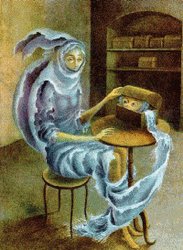 My dears, this is a work in progress, especially so...
My dears, this is a work in progress, especially so...Motion at the Margins
An essay on Remedios Varo should not begin with biographical information. Varo's works speak for her selves, and I think she'd agree. It is not the movement of the individual through a tangible place in history that makes a work reverberate, but what we can find within. Here’s what I see: creation, metafiction, solitude, reworked myth, isolation, play, female, locomotion, landscape, science rethought.
 To start. Next door in image 2 and below in image 3, we see two examples of what intrigues me about Varo: her characters are solitudes, and rarely do two solitudes meet. The painting with a man riding a wheel (Vagabond), and the painting of a woman in a boat (Exploration of the Sources of the Orinoco River) speak to the motion of the individual through space. Both of these characters are inventive, and not only that, they invite dialogue.
To start. Next door in image 2 and below in image 3, we see two examples of what intrigues me about Varo: her characters are solitudes, and rarely do two solitudes meet. The painting with a man riding a wheel (Vagabond), and the painting of a woman in a boat (Exploration of the Sources of the Orinoco River) speak to the motion of the individual through space. Both of these characters are inventive, and not only that, they invite dialogue. The vagabond moves himself through a forest on a windblown vehicle. It is not sufficient for the vagabond to simply walk; rather, he has incorporated his body into a contraption that turns and turns. It is through the cyclical motion of the wheels – objects that suggests continuity, revolution, and energy – that the vagabond makes his way in the world. He does not simply lift his feet in a series of cause-effect motions that would suggest disconnected serial progression, but instead he spins along, carefully balanced on two single and disconnected rotations. And instead of being propelled by an inexplicable gas engine, his wheels are connected to two wind turbines above the man’s head. One might wonder where the wind is coming from, based on the closeness of the forest around him, but regardless our vagabond is at the edge of the path, and so he has made it somewhere, and with the energy he can find along the way.
We cannot see what directions the vagabond is spinning towards, but we can see the past. The past is suggested by a path cut through an organic landscape, and it is also suggested by what the vagabond carries with him: a picture, books on a bookshelf, a cat near his feet, a flowerpot and pan near his heart. His head is encased in a roofed dome with two windows, and were he to choose, the vagabond could close himself in with his personal past - shut himself off to the path behind and the path in front, which demonstrates to me the division between personal and traveled path and the sealed space within which we exist and yet still move.
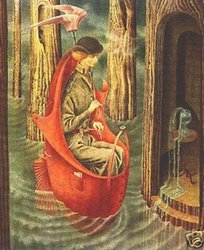 Likewise, this woman in the boat controls her vehicle with devices sprung from her body. Unlike the vagabond, she carries nothing but the means to motion. Unlike the vagabond, her motion is a search for something. There is something nostalgic and backwards looking about the vagabond, whereas the woman is looking forward. And for what does she look? For “the sources,” or what looks like a glass spring housed in carved out tree. The “source” sits on the top of a glass table, and is a combination of organic (water/tree) and inorganic (manmade creations). But no matter what, our intrepid female traveler is going to fuel her wings with her hands, her body, her clothes, and give wing to her desire to find some form of truth.
Likewise, this woman in the boat controls her vehicle with devices sprung from her body. Unlike the vagabond, she carries nothing but the means to motion. Unlike the vagabond, her motion is a search for something. There is something nostalgic and backwards looking about the vagabond, whereas the woman is looking forward. And for what does she look? For “the sources,” or what looks like a glass spring housed in carved out tree. The “source” sits on the top of a glass table, and is a combination of organic (water/tree) and inorganic (manmade creations). But no matter what, our intrepid female traveler is going to fuel her wings with her hands, her body, her clothes, and give wing to her desire to find some form of truth.Note the narrative one can give to these pieces (and we could keep going). This is what I mean by "inviting dialogue." These pieces suggest a story and a motion through space. And it is a motion that we get to fill in as we look for the myth that moves these rather fantastical pieces.
When I first looked at some of her paintings, I thought that Varo was perhaps a little too fantastic. In a world of disease, war, poverty, etc., how dare she painting “darling” little fairy tales! But I changed my mind. Varo’s paintings are lonely and inventive, and they demand that we acknowledge the loneliness and yet connect to it. The external is connected to the internal - physically, unapologetically. But the processes by which these two characters are moving are unique, and I found myself asking questions like:
If we are isolated, how will you tell a story? If we are static beings of flesh, how will we invent a new means of moving? Where are we going to go? What are we looking for? What materials can we use to get there?
These questions need some biography, (although I can't yet articulate why).
Varo was born in, and grew up in Spain. She was early interested in art, and drew pictures of fairy tales even as a child. Her father, supportive of her interest, scrapped together enough money and sent her to art school after a series of Catholic schools that would later show up in her work. At art school, she chafed at the edges, but explored fairly classical forms.
In order to finally escape, Varo married another artist and moved to Barcelona. In Barcelona, she entered some surrealist groups, but the main surrealist movement was taking place in Paris. In bold verbosity, she wrote off to the surrealists and told them of her commiseration with their aesthetic goals. Eventually, one of the surrealist bigwigs--Peret--came down and met with her along his journey.
Yeah, and love was to be had. Which is interesting. Varo had a number of lovers, and if you remember, was married, but she still managed to stay friends with them all and they hung out with each other. Something I would have liked to have seen. (How is this possible? I still want to knock my ex’s head off for sleeping with my friend after ditching me). This was all happening right around the time of the Spanish Civil War. Varo’s younger brother got himself killed on the Franco side of affairs, and Varo’s decision to leave her husband and join Peret in Paris might have been influenced by the increasing random violence that was occurring around her.
Her move probably was a wise choice, since she later had to rescue her Spanish husband from an internment camp, but once she had left, she was branded a leftist artist and barred re-entry into Spain. This is where her voyage started, and much of her most impressive artwork seems to point towards a longing to find home, an eternal sense of displacement, and the “vagabond” lifestyle that left her without a center to her multiple identities.
I relate, to say the least.
[Alright, I’m stopping here for now. I’ll come back.]
----
all bio info, and some dialogue on Varo’s works, from:
Kaplan, Janet. Remedio Varo: Unexpected Journeys. NY: Cross River Press, 1988.
images nabbed from various internet spots, but they’re Varo’s.
never paralyzed
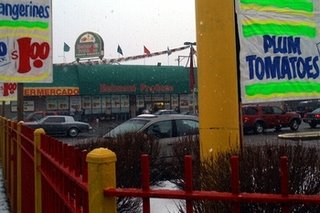 In honor of:
In honor of:the food in my cupboard;
my friends;
my family;
the privilege of attending an Art Institute.
Some items of interest:
BBC article on Somalia
WFP article on East Africa
ICRC article on Horn of Africa
As far as I understand it, drought threatens the lives of millions in the area that includes Somalia, Kenya, and Ethiopia. The poverty of this area is nothing new, nor is famine and war, but right now things are pretty dire.
In the mean time, our trade deficit is soaring, our blessed Christian buddy Pat Robertson fucks up again, things get worse in Iraq, and global warming continues in too many ways to innumerate. Potentially cause for paralysis, but fuck that shit.
In honor of my privileges, the personal happiness and freedom I am now feeling, my right to a liberal, nonreligious, artistic lifestyle, and my ability to act... even if in a limited fashion, I have donated a little bit of what I can today (UN Alternative).
I lub you all and hope you join in this act of defiance, or maybe I have simply joined you.
Sunday, March 12, 2006
...the nostalgia
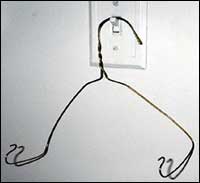 oh, Mississippi and South Dakota, not to mention other fine states: how the winds of history blow... the sweet smell of citric honeysuckle as it wafts... the days of our darkies washing everything delicate by hand... mumsies quietly haunting the kitchen, serving up plates of chocolate chip cookies... pa smelling acrid, the odor of a hard day's work... calling our bosses "sir"... this nation's great hegemony running outwards like rays from the sun's heart... and down below, in the dark, in the closets, in the aching caverns, our silence. ah, the nostalgia.
oh, Mississippi and South Dakota, not to mention other fine states: how the winds of history blow... the sweet smell of citric honeysuckle as it wafts... the days of our darkies washing everything delicate by hand... mumsies quietly haunting the kitchen, serving up plates of chocolate chip cookies... pa smelling acrid, the odor of a hard day's work... calling our bosses "sir"... this nation's great hegemony running outwards like rays from the sun's heart... and down below, in the dark, in the closets, in the aching caverns, our silence. ah, the nostalgia.
Monday, March 06, 2006
is it just me...
...or are things looking pretty mezmorizingly bleak?
Here's the top 3 news items that upset me today:
The US wants to go even further in debt... for the 4th time, it's asking for a raise in the debt credit limit. um. hello? Republicans: whatever happened to that "fiscal responsibility," and "less" government is "better" government, balance everything out, BS line-of-rhetoric that is supposed to be "important" to you guys. I may be a pansyass liberal arts writer-teacher wannabe, but I know how to balance my checkbook, live within my means, and work to pay things back.
South Dakota bans abortion... whatever else, even if our supreme court decides to stick with a 30-f/ing-years-ago decision, we've wasted time and money on an issue that will never have consensus and has the ability to divide this country even further (if that's possible). Respect your womens, folks!
US is now threatening Iran... um. yeah. not a good moment to wave our guns over more islamic nations. a tip: they don't like us very much right now. Granted, I don't want a semi-militant nation in the midst of Middle East turmoil to have nuclear arms capacity any more than the next guy, but tippy-toe might be a better way of working on things right now.
So yeah. Thankfully so's-n-so in my personal life is pretty damn cute, or right now I'd be in a verybadmood. But so's not to capitulate to my complacency, I think I'm going to have to get crazy soon, and do something to help curtail the downfall of life on earth as we know it (the good stuff, that is. the bad stuff can end any day now, and with my permission and blessing).
Here's the top 3 news items that upset me today:
The US wants to go even further in debt... for the 4th time, it's asking for a raise in the debt credit limit. um. hello? Republicans: whatever happened to that "fiscal responsibility," and "less" government is "better" government, balance everything out, BS line-of-rhetoric that is supposed to be "important" to you guys. I may be a pansyass liberal arts writer-teacher wannabe, but I know how to balance my checkbook, live within my means, and work to pay things back.
South Dakota bans abortion... whatever else, even if our supreme court decides to stick with a 30-f/ing-years-ago decision, we've wasted time and money on an issue that will never have consensus and has the ability to divide this country even further (if that's possible). Respect your womens, folks!
US is now threatening Iran... um. yeah. not a good moment to wave our guns over more islamic nations. a tip: they don't like us very much right now. Granted, I don't want a semi-militant nation in the midst of Middle East turmoil to have nuclear arms capacity any more than the next guy, but tippy-toe might be a better way of working on things right now.
So yeah. Thankfully so's-n-so in my personal life is pretty damn cute, or right now I'd be in a verybadmood. But so's not to capitulate to my complacency, I think I'm going to have to get crazy soon, and do something to help curtail the downfall of life on earth as we know it (the good stuff, that is. the bad stuff can end any day now, and with my permission and blessing).
fester
“I don’t know if I can stay with him. It’s just that he… well… he’s blaming everything on the pimple.”
in the subway car, everyone looks at him. they look at the window, they look into their bags, they look at the feet, they look at the metallic lines. people rock back and forth as the car curves around a bend at high velocity. a girl loses her footing, starts to fall, and catches herself. she looks around above her, at the ads, at the door; nobody noticed her. they look at their books, at their papers, at their iPods. they glance at people’s coats, gauge it against their own warmth. they look at the man who sits in the corner with his hat pulled low and his legs up on the seat next to him.
but sooner or later, they are going to look at it.
it is enormous. like the citizens of Pompeii, its neighboring pores are starting to feel edgy. a slow matriculation ensues, as if maybe the eruption will layer them lighting fast in ash and lava flow. his other facial features place bets on the resulting geologic formations: whether the fallout will leave pahoehoe or glassy chunks of obsidian lodged in the angular surface of his skin.
the people on the train are staring at it. he is certain when they look away and move their hands up to their faces, rub their chins, looked relieved.
the pimple must be blamed. everything on his face blurs away from the future big bang. the pimple causes great harm.
“don’t lay everything at my base,” it tells him.
“they’re all looking at you,” he accuses right back.
he hasn’t been able to secure a job. all the interviewers scootch closer and closer to the door. he's sure of it. his residency, finished, and now nobody wants to look at his art, not because his art is any less brilliant than before, but because they are always distracted when he sets up the gallery. let's write an ode to Mt Saint Helens, his chin tells him. but his work is less brilliant than before; this too is the pimple’s fault.
“whenever i go to create art, it gets in the way,” he tells his girlfriend. "and i mean physically. it physically impairs me."
“maybe you are being too sensitive?” she says brightly. “look here. right here.” she points to her nose. “i have one too. normal!”
“you just don’t understand,” he tells her. “you don’t know what it means to scar.”
she looks away. her hand moves to her chin. she too looks relieved to discover it smooth.
his apartment is becoming less viable, now that he has no job to pay the rent.
“this is your fault,” he tells the pimple.
“maybe you should withdraw and pay me attention until i decide to go away. let's spend hours together, you and i. we'll research me. we’ll research my origins. maybe they’ll be appealing and i will go away to find my roots.”
"shut up," he says back.
his friends get antsy and leave the country. “oh, I have an internship,” says one. “yeah, i'm moving back home with my folks,” says another.
implied: there's no action too large to get away from the pimple.
it's mean and bitter; it carries a pure putrescence in its heart. at night, he hears it stirring. it whispers in his ear as he dreams.
“everybody knows what it means,” it says.
he knows it's true. they are all staring.
Wednesday, March 01, 2006
more fictation: Swallow
Here's another blip developing "Sparrow's voice." So's to let ya know, I've changed Sparrow's name to Tahina, because the "Sparrow as name, Swallow as title" thing was confusing. But I'm open to name suggestions because I've pilfered the name Tahina from a real person I know and that is a no-no. But it has to be as good a name as Tahina. That's the tough part. Oh, and here are the links to the other Tahina/Sparrow sections for the curious (er, maybe?): 1st Bit and 2nd Bit. Oh, and I need some bites, nips, or licks soon, or I will have to start twitching.
-------------
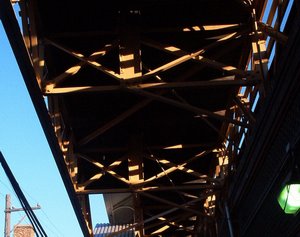 The sheets below me are too white. That type of white one only finds in a place where everything must be washed extra hard. I am thankful for the coarse white. It's rough against my skin and this is something I can feel. I can strip nude, with nobody here to see it, and rub myself against the sheets until I am completely raw. But I feel every inch of it, this sensitivity. Even a single finger’s touch would hurt. When you rub yourself raw, there's no part of you that disappears.
The sheets below me are too white. That type of white one only finds in a place where everything must be washed extra hard. I am thankful for the coarse white. It's rough against my skin and this is something I can feel. I can strip nude, with nobody here to see it, and rub myself against the sheets until I am completely raw. But I feel every inch of it, this sensitivity. Even a single finger’s touch would hurt. When you rub yourself raw, there's no part of you that disappears. I stand up from my bed, my naked body roughed up. The sheets below wrap around the past tense of me. I look at it. I go and look in the bathroom mirror; I watch my face so blank. Not even I can tell what’s going on inside from the expression that looks back. A pointed face, tiny and composed; green eyes with blond ashy eyelashes; hair chopped short and then grown to a flapper’s length and dyed black as if I could reclaim the part of me that comes from picante and recardo rojo. A mirror, that’s what it is.
And I’m so worn through with my thoughts. I talk to him at night, stalking. There is nothing but repetition in the tale. Or maybe that’s not true; maybe I tell the story over and over again for the differences, for the small little details that come up from nowhere. This is when I’m not sure whether I’ve made everything up, or whether it was there all along for me to see.
I throw on my clothes without thinking about them. I want my skin engulfed and hidden red with freckles and a patch on my thigh that I can’t feel.
I want to hear my own voice.
“Multiple Sclerosis,” I say to myself and then sound out the phonetics of my disappearance. “multitudinous scllller o sis.”
“Chocolate,” I say in conciliation. My shirt goes on over my head and I don’t put on a bra. I don’t want a bra, don’t want the constrictions, the pretensions.
Everything underneath will be what it is. The shirt brushes against my shoulders and I leave it there a second, my arms straight overhead, my eyes closed, fabric that smells like me: a faint grease, cobblestones, panic, citrus lotion. My nostrils widen, and then I drop the shirt down over my cool breasts and furry stomach. Jeans come next, no underwear, I will be bare down there too. Sandals, no socks, and an empty backpack that will return with chocolate and wine. I open the door, take a breath, and leave. I tumble down the stairwell, not tumble but walk with uncoordinated fervor.
*
Night truly begins with a lust for chocolate. The day: I’ve spent it inside with the spider, with my chalk, with the chalked line I’ve drawn for practice. Outside: an increase in noise, the shouts outside, angry lovers everywhere, lovers willing to scream. I’ve never had a will for that noise, but I do have a will to eat chocolate. Before I go, because I know everything is going to come—including him, including him—I spend some time contemplating the chocolate I will indulge in.
Once in the store, I will walk around the tightly packed aisles. The storetender will wear a turban and have eyes that follow me everywhere. There will be little green fruits peering out of light yellow husks, and I will not know what they are. I will look carefully at the packages, sound out the words. Caldo de pollo. Arroz. Atun en aceite. I will find the wine and grab the green stuff, the kind that still bubbles when you open the lid.
“Que tipo de chocolate recomiendas?” I will ask the storetender.
“Que le gusta, nina?”
“No se. Un tipo rico.”
He will hand me my chocolate, a square bar wrapped in white plastic. I will pay for it and the wine, and leave.
*
I was seven minutes late, to be exact, and in a hurry, walking quickly down the streets. It was autumn and the leaves weren’t falling yet, but smelled crisp and brown along the sidewalks. Night was approaching, the sky a dark blue with four stars already visible. Objects were already going to break, even that first night. I was almost jogging, and had left my jacket at home under the enforced delusion that it was still warm outside. I didn’t want to think it was really the end of the summer. Leaving my jacket at home helped me believe it was still summer even if my skin warped and bumped and my whole body shook. I was wearing a thin sweater, the kind where you fix only the top button. And a brown silk shirt. I wasn’t thinking about you yet, although I was highly conscious of being late.
I didn’t intend to give you a chance. I was happy, strangely so without any explanation other than the fact that I could still pretend it was summer and four stars were out and most of my neighbors had planted flowers like chrysanthemums and impatiens, which were still going along their sidewalk paths. My family was nearby but not so nearby that I needed to be with them. I had my own place, no sharing, nothing staring me in the face.
But at some point, I stopped, even though I was late. A scent came over me and it made something close in my throat. Tight, like the way one wants to squeeze a kitten. I’m not sure what the scent was.
Near decomposition? It was a scent colored brown and orange, cool, a tiny bit of seaweed in it. It made me remember something. A small image scrolling past from a camper window, a tree bending in the middle of an empty field. The sound of The Cars in the background; Neecie, Cedra, Fish and Gustafo all singing along softly. It was the smell of us all there, packed tightly in the back of a camper, curled up in the bed compartment above the cab, plastic up above, and rectangular fuzzy windows on all sides. Cedra on her back next to me, holding her piece of cloth and being still for a change, her arm just barely touching mine as I looked out the windows and saw a tree bent in an empty field.
I smelled all of this when I was walking to see you, and it made me turn sideways from my path and walk over to a thin maple standing in the elementary school playground. I wanted to take a second. Although late, and highly conscious of being late, I was going to commit myself to the scent for a few seconds.
I didn’t intend to give you even a few seconds: you were plain and couldn’t stop staring at me whenever we were in the same room. You spoke very little and poised your hands on your knee like you didn’t know what to do with them. It wasn’t really awkward or nervous, but instead a little pretentious and I wanted to bark at you when you stared at me like that. Sure, I was going to meet you, and I had even invited you to the date, manufactured a meeting, but I was intending to either get bored of you in a few seconds, or to use your body and then wave goodbye. That was all you were going to get.
But even though I was so conscious of you waiting for me, of you sitting with that look on your face in the coffee shop where we were to meet individually for the second time, even though I felt so sorry for you, I was going to climb that tree, and I was going to make you wait. If you didn’t wait for me, you weren’t worth even a few seconds. So I jumped up, caught the lowest bough, and yanked myself up into the branches and sat there for a long time, thinking about what was going to come, thinking about the tingle in my fingers, what I held over you, but far more than that, thinking about the near rustle of the leaves, the way they were still hanging on, the last sounds they made before wrinkling down and losing their grip. I can’t tell you how pleased they sounded just to have to wind rubbing them raw and sweet.
And I saw you clearly in that moment. I saw you sitting there, your legs in slacks crossed. Your glasses perched preciously on your face, hair neatly combed to the right but with individual sections sneaking upwards as they dried. You were trying to drink some coffee, but your fingers would sneak out and tap the table. People moved by, locals, all of them looked like locals, and even if you weren’t one of them, you looked mostly that way too. You did wear black slacks, which didn’t quite fit, and your shirt was white, done up under to your chin, but there was something almost stylish about the way you did that. You knew that too, and worked it when you were in the halls at work. A nerdish sort of suavidity, pants just one step too large but no more.
There was something not local about that; the others in the coffee shop wore their clothes like part of their bodies. Hardy scratched-up carhardts from off the docks, a paint splash here and there; sweatshirts wrapped tighter with vests; jeans creeping around the butts; a black seaman’s hat with the rim rolled up; a baseball hat slightly askew but not very. A girl with blond hair and long lashes looked at you as she passed by on her way to the counter, and the two of you had the same reaction to each other. Complete disinterest and minor scorn. You looked back down at the book you brought to make sure that it seemed as if you weren’t waiting although it was written all over your body that you were.
From my tree, I watched your eyes skimming over the black surface of the print, and knew that you weren’t seeing the words. You were thinking of me. You were wondering where I was, and whether I was standing you up. For the first and only time with me, your emotions were directly halfway between painful hurt and pretended nonchalance. I was okay with that; I wanted you to feel it, and not because I was cruel, but because I thought you would remember it, and it would make you happier later. Even if I didn’t intend to give you more than a few seconds.
*
Long walks in the night, I take. I try to see it all over again.
“You can’t change the past, mi hija,” said Mafer before I left, “You can only change the way you feel about it.”
I want to change the way I feel about you. I want to see you differently. I want to pick over the bones to see if it was something in the marrow of us, because maybe if I saw it that way, it would carry something other than the soft shuttle of time misspent, time malformed and all out of order. I want to shape light. And feel differently about me too. I want to see myself as I am, and not as everyone else has defined me.
I look at my reflection in every window I pass. If anyone were to see me doing it, they would think me conceited. Maybe they would be right. Maybe this hypnosis is a form of vanity. But I look nonetheless, and see the other me watching this me out of the corner of her eye. She is baggy-draped and walking down a stone path in Barcelona. Behind her, el Barri Gotic, an ornate and inexplicably sinister wall of passing buildings. The evening hasn’t yet set in, and shadows stretch out over iron streetlights and balconies. Several people pass the other me: two tourists with cameras, a boy in short pants moving in an almost-run; a small girl in a white dress… and then her parents, arm in arm. The other me in the window slows down, stops. Above only me not her, a blue strip of fabric, not quite a flag, billows. Everything smells slow, something like piss on concrete as it gives heat to a burgeoning evening.
“Things divide up, don’t they?”
“Yes,” she says. “Right down the middle.”
“What’s on your side?” I ask her. I want to know.
“Oh, just another future left to die as soon as you leave this frame.”
“That’s not very optimistic. Couldn’t we keep it alive too?”
“If you want to be in front of a thousand windows at once, never looking through.”
“Staring at myself, I suppose.”
“Yes,” she says.
“Staring at a thousand different illusions.”
“Yes,” she says.
“Isn’t it the only means available to see the place where I am standing?”
“You ask for a lot, don’t you?”
A man comes out of the door next to the window that houses my other me. He pauses in the doorframe. He rubs a hand over his mustache. He tilts his head.
“Can I help, señorita? You are lost?”
I can feel my eyes crinkle as I smile. Tight, like one wants to hug a kitten.
“Gracias, señor. Solo estoy pensando.”
Esta es la lengua de mi otra vida, la unica que todovia esta viviendo con familia en un pais se llama Mexico.
When I first arrived here, this street, el Carrer de Pi (3.14159), saw my backpack stolen and recovered. I stepped off the bus and started walking west. Any direction as long as I was walking. Finally I stopped along this street and sat down on a bench. I took off my two backpacks, medium and small, and sat them next to me, studied a telephone booth nearby. I was so dizzy and wasn’t sure I could stand upright any longer. My upright was diagonal, and I felt sick and shaky with cold. I wanted to call someone. I couldn’t think of a single name. And then my backpack was gone, the small one.
I stood up as soon as I was sure. Not stood, I flew up. And looked west first then east. Off in the east, a boy medium-height in jeans flying off down the path. I started to run after him. I started to run back, to the medium pack. I started to run after him again. And then… whump!
Another boy came out of a doorjamb, his hand smacking flat against the runner's shoulder. The runner spun backwards off the new boy’s hand. I saw his face just once, quickly falling: an open mouth, darkness for eyes in the distance. Then he continued spinning and by that time, came completely off his balance and hit the ground with his pelvis. But still spinning, one arm pushing him back off the Carrer de 3.14159 and up again. My backpack slowly came off his other arm. And he kept running.
The doorjamb boy picked up my bag first. Then looked up straight at me, not smiling. I wondered if he was going to claim it, and there I’d be, still ten feet from the medium pack and a bench. Feeling dizzy and sick. Wanting to give up and go back. But then he slowly walked towards me, and all the different arrangements splayed out in front of us: I was going to have to pay him; I could invite him out to dinner; we would fall in love over a bottle each of beer; he would chastise me for being such a careless tourist; I would hang my head.
He walked over and handed me my bag. His hands were three times thicker than my own. We could have even measured them on the spot. They were nice hands. He turned around and started walking off again.
“Señor,” I called after him.
He held up the back of one very nice hand and waved it back forth over his head. He continued to walk away.
That’s what it’s like here, I tell myself. That’s just what it’s like.
“Goodbye,” I say to the confused man in the doorjamb and also to the reflection me that will pass into another reflection me as I continue on to the Placa de Pi, where I intend to open my fizzy wine and watch the night come home completely.

